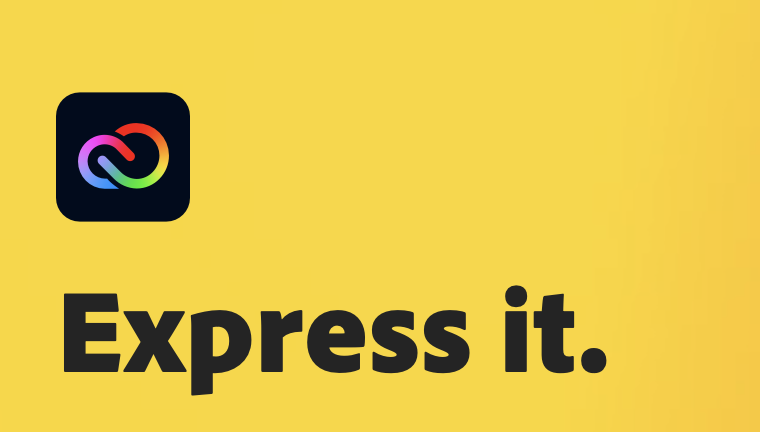Wed., Jan 12 - Producer Academy
What: This webinar is for students interested in pursuing careers in newscast and digital news producing. Topics include:
How producers can contribute creatively to the content gathering process
The Investigative approach to producing
How to create unique stories on digital platforms
What a producer’s first year in the newsroom may be like
Tips on applying for newsroom jobs
Who: TV News Directors and Producers from Sinclair news operations
Cost: Free
When: 11am - 1pm Central, 9-11am Pacific
Sponsor: Sinclair Broadcast Group
More info: eepiereman@sbgtv.com
Thu., Jan 13 - Op-Ed Crash Course
What: Everything you need to know, with insider tips, on how to craft and place a compelling op-ed. Upon request, participants will be matched with a professional journalist to support you as you craft your own op-ed related to student press freedom for a professional daily (or national) newspaper.
Who: Author & Veteran CNN & New York Times Journalist Steven Holmes
Cost: Free (limited space)
When: 7 pm Central, 5 pm Pacific
Where: Zoom
Sponsor: Student Press Law Center
Register
Fri., Jan 14 – Pitch Tips from Journalists
What: Want to learn how to send fewer story pitches but land more media coverage? This panel of journalists will provide insights on what they are looking for and feedback on your current story ideas.
Who: Associated Press reporter Julie Watson who covers U.S.-Mexico border and military affairs; San Diego Union-Tribune biotech reporter Jonathan Wosen; The Filipino Press publisher Susan Delos Santos; KPBS news editor Gina Diamante.
When: 3-4pm Central, 5-6pm Pacific
Where: Zoom
Cost: $5
Sponsor: Public Relations Society of America (PRSA)
More info
Tues., Jan 18- Google Tools for Journalists 101
What: In this hour-long virtual training, you will learn the fundamentals of the (free) Google Tools you can use to find and vet sources, verify user-generated content and even get beat-related content delivered straight to your inbox. The session will focus on making Google Search, Trends, YouTube, Maps and Alerts work for you. Plus, a quick overview of what data you can find and use as free, embeddable graphs.
Who: The session will be taught by founding Google News Initiative trainer Vix Reitano, founder + CEO of Agency 6B, a Forbes #Next1000 2021 Honoree,
When: 7pm Central, 5pm Pacific
Where: Zoom
Cost: Free
Sponsor: Society of Professional Journalists, NYC Deadline Club
More info
Wed., Jan 19 – Understanding News Media Bias
What: This session will help you think more clearly about what causes bias in reporting, what it looks like in coverage and what you can do when you encounter it in your news diet.
When: 1-2 pm Central, 11-noon Pacific
Where: Zoom
Cost: Free
Sponsor: News Literacy Project
Registration
Sat., Oct 23 - How newsrooms are shifting strategies to better serve communities
What: This panel will discuss how local news ecosystems can evolve to be more relevant, responsive and relied upon by the communities they serve.
Who: Charlie Sennott, CEO of GroundTruth Project and co-founder of Report for America; Anne Galloway - founder and editor, VTDigger; Crystal Good - publisher, Black By God; Candice Fortman - executive director, Outlier Media; Tasneem Raja - editor in chief, The Oaklandside; Moderator Victor Hernandez, WBUR chief content officer
When: 5:30 pm Central, 3:30 pm Pacific
Where: Zoom
Cost: Free
Sponsor: WBUR, Boston's NPR News Station
More info
Tues, Jan 25 - Careers in Science Writing
What: Thinking about a career in science writing? Hear from professionals in journalism and communications about various career paths during a virtual panel.
Who: ·Heather Buschman, director of scientific communications and media relations at the Salk Institute; Katy Stegall, investigative assistant at KPBS; Jared Whitlock, freelance journalist, MIT Knight Science Journalism fellow; Jonathan Wosen, biotech reporter at the San Diego Union-Tribune
When: 10-11am Central, 12-1pm Pacific
Where: Zoom
Cost: Free
Sponsors: Society of Professional Journalists, San Diego Science Writers Association, San Diego State University,
Register
Wed., Jan 26 - Responding to Press Freedom Threats Through Advocacy
What: Whether through censorship, regressive legislation or bad policies, student voice is under attack. Learn how student journalists have changed the press freedom landscape in their states, and concrete strategies you can take to work with legislators and other decision makers to restore and protect the freedom of the student press.
When: 7 pm Central, 5 pm Pacific
Where: Zoom
Cost: Free (limited space)
Sponsor: Student Press Law Center
Register
Thu., Feb 3 - How to Tell Your Story and Be a Spokesperson for Student Press Freedom
What: Effectively advocating for student press freedom means connecting with others and offering an authentic account of what motivates you to be a journalist. This fun, interactive workshop will turn you into a pro in telling your "story of self" and provide you with skills that will be valuable in many different areas of your life.
When: 7 pm Central, 5 pm Pacific
Where: Zoom
Cost: Free (limited space)
Sponsor: Student Press Law Center
Register
Thu., Feb 10 - Using Social Media as a Journalist & Advocate
What: Social media is a powerful tool that enables almost anyone to have a platform. In this session, we'll explore how journalists can be advocates for student press freedom online and break down the 2021 Mahanoy Area School District v. BL Supreme Court decision.
When: 7 pm Central, 5 pm Pacific
Where: Zoom
Cost: Free (limited space)
Sponsor: Student Press Law Center
Register

